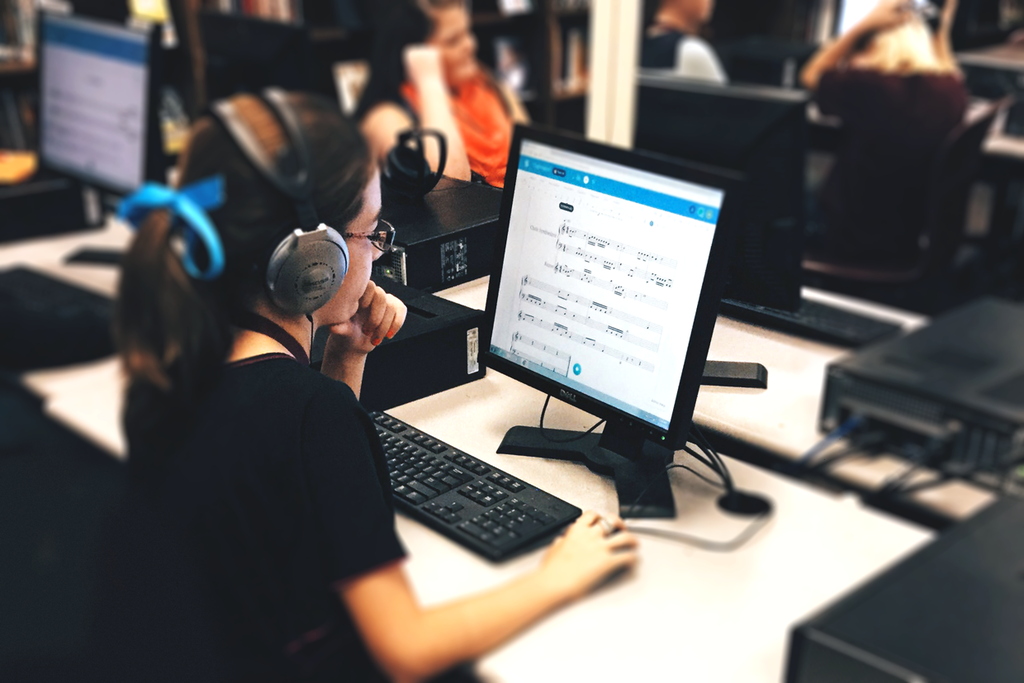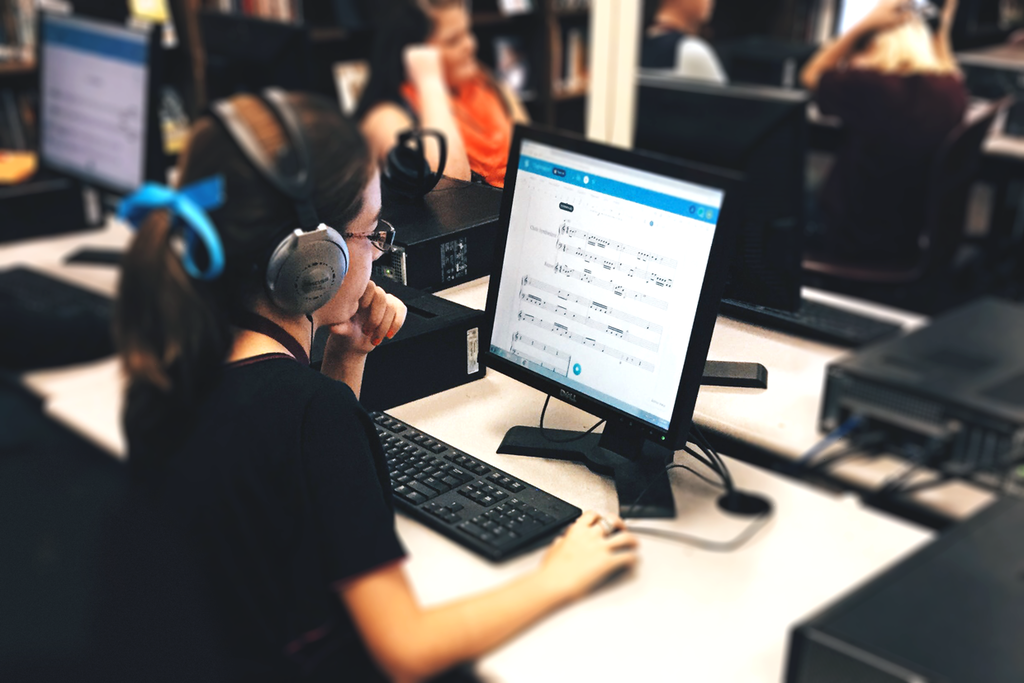Hi all,
Today, I feel very enthusiastic to tell you the story of another teacher who proved to be successful at using Flat with his classes. This portrait is the second one of a new series of posts dedicated to our involvement in music education. If you missed the first one, you can read the story here.
So this week, let's go to Arkansas to meet Jordan Murdock. Thanks a lot to him for the great time we had during our chat. 😊
The Classroom
Jordan Murdock belongs to the new generation of music teachers. He graduated at the end of 2015 and started to work as a music teacher at Crossett Middle School on January, 2016. He is in charge of the general music education for two classes, with daily lessons for 1h30. He has built his two-year curriculum using a Kodály-centered approach for 5th grades, and then an Orff-inspired program for 6th grades. He discovered Flat by word of mouth last August and decided to integrate it to its curriculum for the current semester.
The Challenge
Crossett Middle School did not have an interactive music programme for his students. The music lessons were essentially focused on theory, which were not considered engaging enough for young students. Jordan's mission as a new teacher was to set up this new program, preferably with the integration of educational tools to the curriculum. During his first semester, he tried other music notation softwares that were difficult to learn and use for young students. But he was quickly convinced by the hands-on approach that Flat provided with his user-friendly experience.

The Solution
Jordan managed to pass from conceptual learning to practise, with the help of Flat. He has been using the different features of the tool to create engaging lessons and stimulating assignments. With the 5th grades, it was all about discovering how (good) music is created through games and listening exercises. He appreciated how Flat serves as an introduction to the basics of how to compose music: creating a rythm, changing a tempo, or placing notes in an interval for instance. Beyond teaching these notions to students, Jordan used Flat to show them how to play with these on a music score, and how these changes really sound.
"Students are happy to learn about real things while having fun using Flat"
Jordan added more composition exercises to the curriculum of the 6th grades. Students were quickly expected to submit composition homework, then take it back to the classroom and play what they composed. "They use the knowledge they acquired in the classroom to create music on their own," he added. Many students of young age often do not realise that music is not only created by superstars for radio and streaming, but also by people for themselves or their kin.
"Students use the knowledge they acquire in the classroom to create music on their own."

The Capabilities
Flat helped Jordan be successful with the first mission of his new job: developing an interactive music program. During his first semester before using Flat, he encountered discipline and behavioural issues with some students not engaged enough with the subject .
However, there was a totally different atmosphere into the classroom when he tried Flat at the second semester. He was particularly proud to see some negative attitudes turn into the complete opposite, resulting with a much higher involvement from students. "Students who had behaviour issues last year completely turned around thanks to the creation of a new music program with Flat. They want to have fun when composing, they want to be more involved," the teacher told us.
The full integration of Flat with Google Classroom also helped Jordan receive constructive feedback and implement an effective follow-up of what students learn and memorize, on top of being able to measure their progress all along the school year. The teacher appreciated a lot to see that the set-up of Flat for his classes did not require additional processes and adapted well to his teaching environment.
And this is only the beginning for Jordan and Crossett Middle School. We wish him all the best in continuing the great work he did for his music classes. 👏
We particularly loved the way he approached music education with listening games, composition homework and the focus on understanding how music is created and sounds. Thanks to Jordan, students learn how to use the best tools to start composing on their own and see how the whole experience can be both rewarding and fun. He revealed us the motto he invented for his music classes: "We are not Singers, we are Musicians".
I hope you enjoyed the read! As usual, feel free to write to us to express your opinion on the article or to see how we can help you implement Flat for your school.
Let's create a whole new generation of composers together! 🚀
If you wish to enjoy a similar experience with your music classes, make sure to get educational licenses for your school. ✌️


